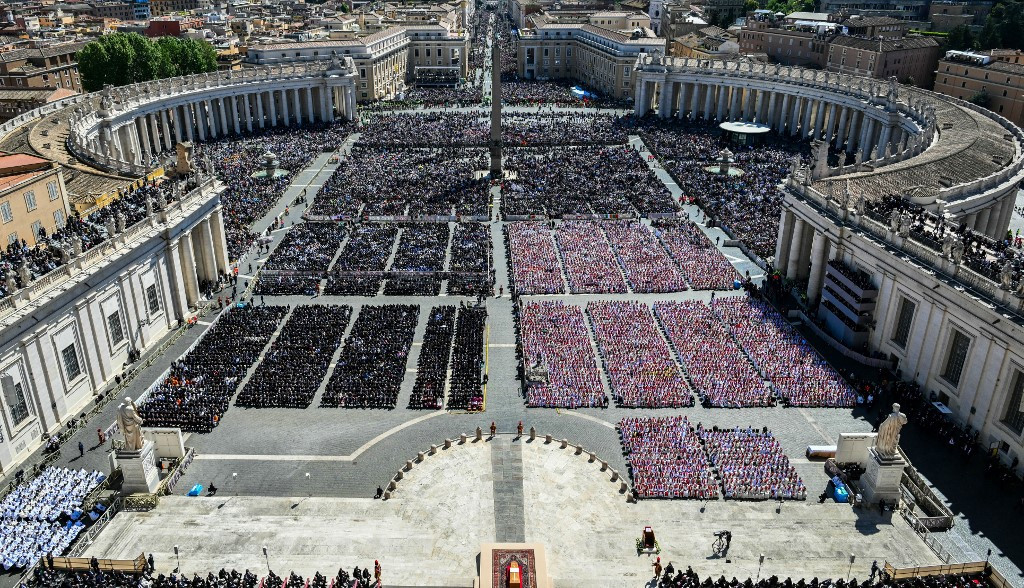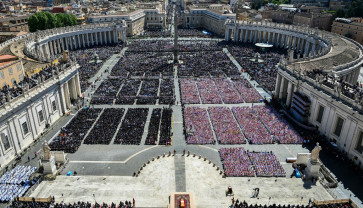Popular Reads
Top Results
Can't find what you're looking for?
View all search resultsPopular Reads
Top Results
Can't find what you're looking for?
View all search resultsFarewell to the pope who loved the world
Pope Francis' personal net worth at the time of his death was estimated at no more than $100, a powerful testimony to a life of service over accumulation.
Change text size
Gift Premium Articles
to Anyone
S
ince April 21, when the world received the heartbreaking news about Pope Francis’ death, mourning has spread across continents. In Jakarta, people lined up at the Vatican Embassy to express their condolences. Around the globe, television, YouTube, and social media have been flooded with endless tributes.
Yet beyond the sorrow, something even deeper endures: an overwhelming love for Pope Francis, who was buried on Saturday. The air has been heavy not only with sadness but also with gratitude for a life lived entirely in love.
Love, after all, is the most enduring memory, a bond that neither distance nor death can break. Pope Francis taught us that love should not remain an abstract ideal but must be expressed through tangible action: compassion for the poor, tenderness toward the suffering and reverence for the Earth, our common home. He embodied love not merely through his words but in every action and decision he made.
His love was not confined to the boundaries of the Catholic Church. It was universal, revolutionary, and courageous. Through Laudato Si', the landmark 2015 encyclical, he spoke to all humanity, calling for a renewed relationship with the Earth.
His passionate plea for environmental protection transcended religious divides. He insisted that the cry of the Earth and the cry of the poor must be heard as one and the same. Climate change, he warned, is not only an environmental crisis but a profound moral and spiritual challenge.
Pope Francis was not afraid to confront the powerful. He sharply criticized the rampant exploitation of natural resources, especially mining practices that ravage ecosystems and displace indigenous communities. He emphasized that true ecological approaches must integrate social justice, ensuring that economic development does not come at the cost of environmental destruction or human dignity. His voice became one of the strongest moral calls for an urgent ecological conversion at a time when political will often wavered.
He lived by these principles with rare humility. Refusing the trap of papal luxury, he chose to reside in the modest Casa Santa Marta rather than the grand Apostolic Palace. Even during his historic visit to Indonesia last September, he traveled by commercial airline and chose to ride in a Toyota Innova Zenix rather than a luxury car.


















